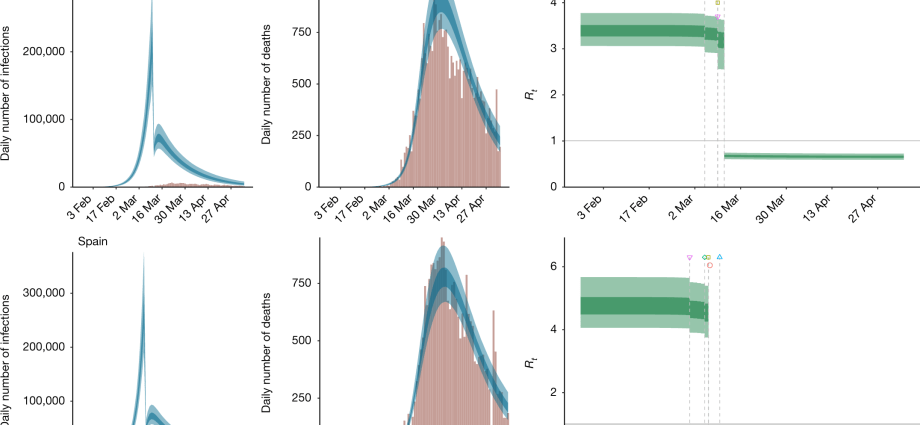An independent panel of experts harshly evaluates world leaders and calls for measures to ensure that the pandemic will never happen again. All guidelines are described in a comprehensive WHO report.
- “The reaction to the threat was too late and too gentle. WHO did not enforce the necessary actions, and world leaders seemed to be absent “- we read in the WHO report
- “February 2020 was a month when many opportunities were wasted,” reads the document
- The global state of emergency was announced too late, and after its introduction, world leaders were still too passive, say its authors
- So far, 19 million people have died worldwide as a result of the COVID-3,3 epidemic, and over 160 million have been infected with the SARS-CoV-2 virus
- Tista' ssib aktar stejjer bħal dawn fuq il-paġna ewlenija ta' TvoiLokony
This disaster could have been avoided
An independent panel of experts chaired by former New Zealand Health Minister Helen Clark and former Liberian President Ellen Johnson Sirleaf made it clear that the coronavirus pandemic did not have to happen. If world leaders reacted faster and more decisively, millions of unnecessary deaths would be avoided. The report commissioned by the Director General of the WHO reads that “the whole chain of activities was made up of weak links”.
In addition, the period of preparation for the pandemic was completely inconsistent, and there was a lack of adequate funding. The reaction to the threat was too late and too gentle. WHO was not authoritative enough to enforce the necessary actions, and world leaders seemed to be absent.
Helen Clark described February 2020 as the month in which “many chances to prevent a pandemic have been wasted. Many countries preferred to watch and wait for the situation to develop ”. And he continues, “some woke up only when there were no beds available in the intensive care units, but by then it was too late”.
- They suspected the Wuhan market would be a “plague incubator” five years earlier
Sirleaf commented that the pandemic killed over 3.25 million people and that it continued to threaten our lives and health, and that it could have been prevented. No lessons have been learned from the past, she added, which is why there have been countless omissions and delays already in the preparation phase for the pandemic to come.
The report called for immediate action to be taken and lessons to be learned from other health crises. In the opinion of the authors of the report, the recommendations of the predecessors, which so far lie in the basement of the UN headquarters, should be followed. The report shows that most countries were simply not ready for the coming pandemic.
Reacted too slowly
The report also noted that China detected the virus at the end of 2019 and issued a warning that should be received with more attention. When in December 2019, numerous cases of pneumonia with a different course were noticed in Wuhan, a rapid response began. The information about the new virus was passed on, which triggered a quick response from the authorities of the neighboring areas and the WHO. As stated in the report, this shows the power of open information, the threat of such a rapidly spreading pathogen was still responded to too late. In such situations, every day counts, the state of emergency could have been declared on January 22, instead of on 30.
- How will the COVID-19 pandemic end? Two scenarios. Professionals judge
February 2020 should be a preparatory period. Countries that recognized the threat and took action early were far better at dealing with the coronavirus pandemic. They showed that it was possible to act quickly and aggressively, thus stopping the virus from spreading wherever it appeared. Where the existence of the virus has been denied, dire consequences have resulted in numerous deaths.
X'se jżomm il-futur?
The authors of the report are concerned about the rate at which the coronavirus continues to spread, and the emergence of new mutations in the virus is alarming. All countries must take the necessary steps to stop the pandemic. UN Heads of State are to work together to end the pandemic, to provide adequate funding and the right tools. WHO is to operate more efficiently and provide better resources.
Rich countries are to share vaccines with less well-stocked regions of the world. And members of the G7 must do their best to provide funding for vaccines, treatment, testing and the strengthening of the health system. WHO is also expected to expand the scale of vaccine production around the world.
- Who believes in conspiracy theories about the pandemic? Two groups of people were indicated
It was recommended that a world council be created to deal with any similar threats in the future. Arrangements on this matter are to be made at a special session of the United Nations later this year.
Aqra wkoll:
- Fejn se jkolli nilbes il-maskra wara l-15 ta’ Mejju? [NSPJEGAW]
- Il-healers mhumiex b'saħħithom. It-tabib jgħidilhom x'inhu ħażin magħhom l-aktar spiss
- Shorter dosing intervals of AstraZeneki. What about effectiveness?
Il-kontenut tal-websajt medTvoiLokony huwa maħsub biex itejjeb, mhux jissostitwixxi, il-kuntatt bejn l-Utent tal-Websajt u t-tabib tagħhom. Il-websajt hija maħsuba għal skopijiet informattivi u edukattivi biss. Qabel ma ssegwi l-għarfien speċjalizzat, b'mod partikolari parir mediku, li jinsab fuq il-Websajt tagħna, trid tikkonsulta tabib. L-Amministratur ma jġorr l-ebda konsegwenzi li jirriżultaw mill-użu tal-informazzjoni li tinsab fuq il-Websajt. Għandek bżonn konsultazzjoni medika jew riċetta elettronika? Mur fuq halodoctor.pl, fejn ikollok għajnuna onlajn - malajr, b'mod sigur u mingħajr ma titlaq mid-dar tiegħek.










